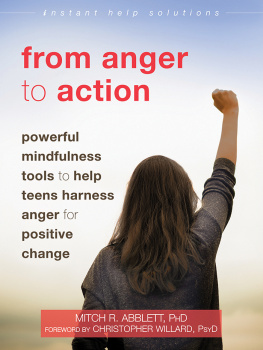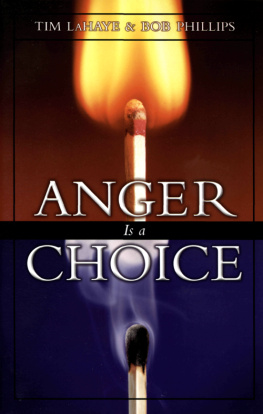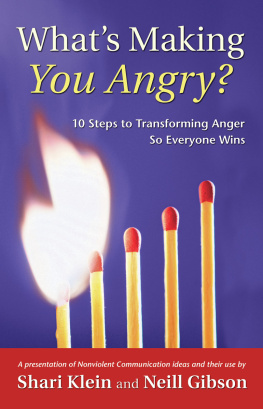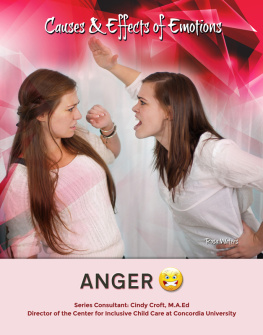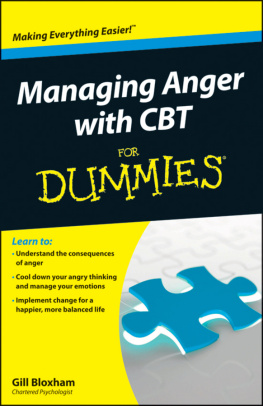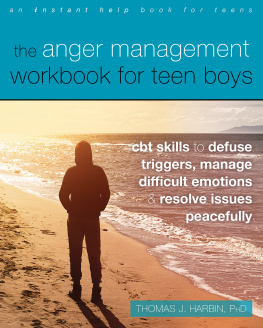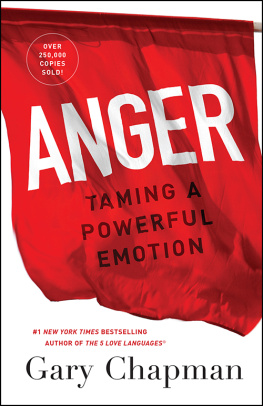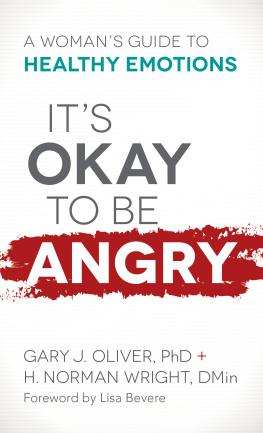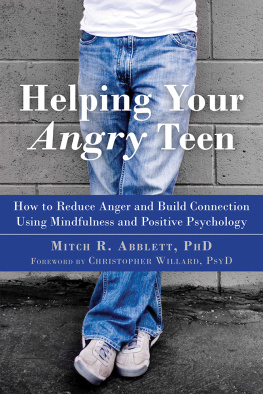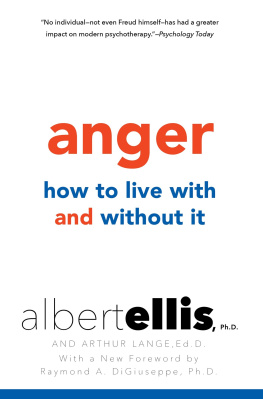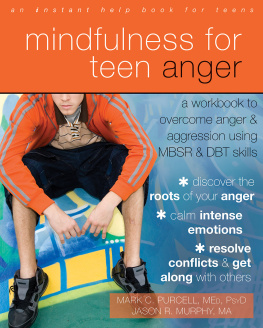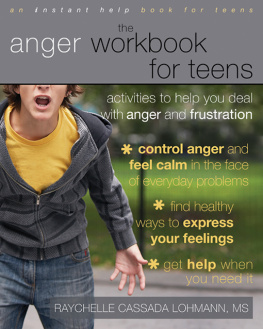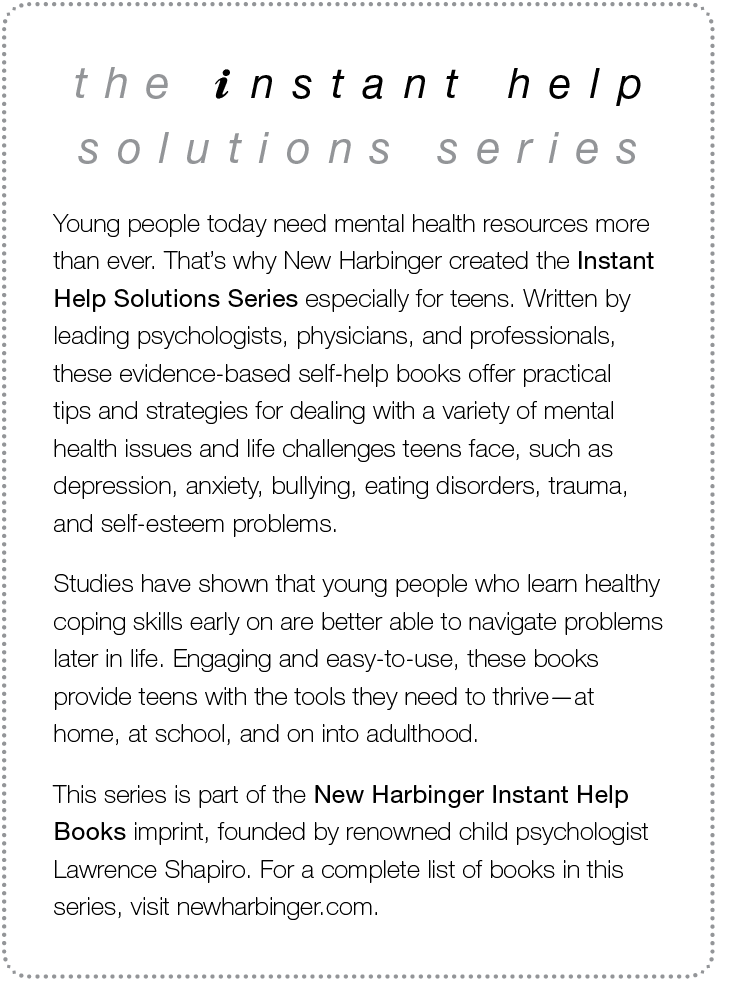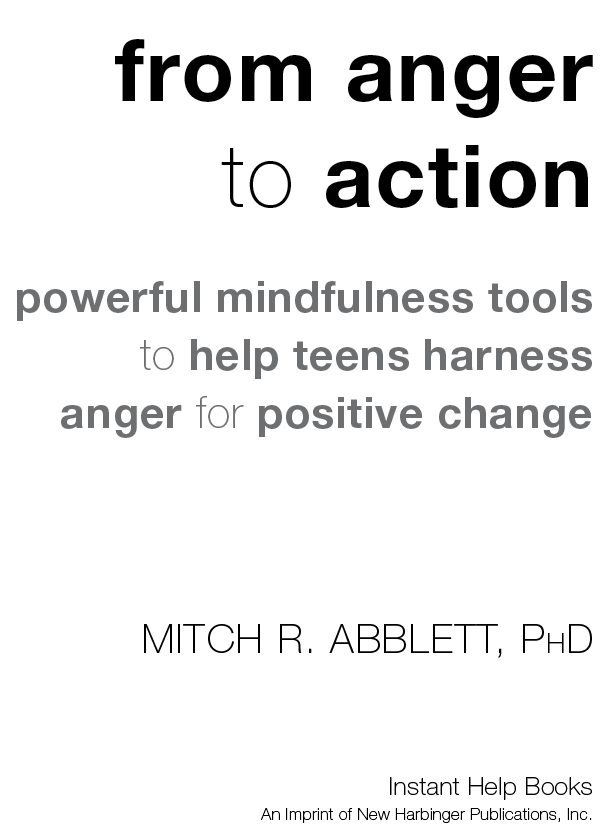You dont want anger running your life any more than you want your parents running it for you. Easy to read, useful, and honest, Mitch Abbletts book will show you why getting angry is normal, but also that how you use your anger is up to you.
Mark Bertin, MD , author of Mindful Parenting for ADHD and How Children Thrive
We all get mad sometimes, and often we beat ourselves up for it afterwards. In his welcome new book, Abblett takes the pathology out of anger. He normalizes it and offers suggestions for ways to transform anger, using it for the benefit of others and also ourselves.
Susan Kaiser Greenland , cofounder of the Inner Kids foundation, and author of Mindful Games and The Mindful Child
Publishers Note
This publication is designed to provide accurate and authoritative information in regard to the subject matter covered. It is sold with the understanding that the publisher is not engaged in rendering psychological, financial, legal, or other professional services. If expert assistance or counseling is needed, the services of a competent professional should be sought.
In consideration of evolving American English usage standards, and reflecting a commitment to equity for all genders, they/them is used in this book to denote singular persons.
Book printed in the United States of America
Distributed in Canada by Raincoast Books
Copyright 2019 by Mitch R. Abblett
New Harbinger Publications, Inc.
5674 Shattuck Avenue
Oakland, CA 94609
www.newharbinger.com
Cover design by Amy Shoup
Acquired by Jess OBrien
Edited by Karen Schader
All Rights Reserved
Library of Congress Cataloging-in-Publication Data on file
Contents
Foreword
When Mitch told me he was writing yet another book about teens and anger, I thought, Really? I know hes worked as a therapist with teens for many years, but hes one of the least angry-looking guys I know.
And yet, as youll learn in these pages, anger is not the same for everyone: neither in terms of how it feels nor in how we act. Many people, including both of our teen selves, have a less-than-healthy relationship with angernot because we lash out at everyone in sight, but because we bottle up and bury our anger inside. However, according to Mitch, its not about whether you act out your anger, or whether you shove it down inside yourself that really matters. Rather, its whether youre willing to use skills like mindfulness to actually pay attention to how your anger ends up holding you back from the things that you value, and how it separates you from the people you want in your life.
As a fellow psychologist, mindfulness nerd, and therapist who has sat with hundreds, maybe thousands of teens over the years, I think Mitch is onto something important. Dont read this book because your parents are making you. Dont read it because someone is bribing you, or because your therapist handed it to you. Dont read it expecting to solve your anger problems and make them go away. Read this book for yourself to get what you want out of life. Mitch has some good stuff to teach about using your attention to listen to your body, to your thoughts, and to the world around you. This clear listening will, in turn, help you see the important things that your anger may have been hiding from you, and it will help you turn your unhealthy anger into the fuel youll need to change not only your life, but also the world around you.
Ive listened to my own anger more mindfully over the years since I was an angry teen. Ive looked more clearly at my life and at my relationships with friends, colleagues, and family, and Ive harnessed so much power to go so much further in life than where my misguided, unharnessed anger ever couldve taken mecertainly further than my family, friends, or therapist thought I might achieve when I was younger. This book speaks with honesty and authenticity, and its totally bullshit-free. These are qualities that I appreciate about Mitch as a therapist, a friend, and as a writer. But I trust youll be the judge of that for yourself.
Bottom line: Read Mitchs book because I told you to!
Christopher Willard, PsyD, Part-time faculty at Harvard Medical School Full-time former angry-kid
introduction
The Incredible Hero Inside the Angry Hulk
Have you ever been told to calm down and found yourself wanting to unleash havoc on the personshow them what anger really looks like? Give them a taste of your fire and fury?
If so, youve come to the right place. As you read, ask yourself:
- Do you find yourself regularly hating on certain people? Why do they tick you off?
- Are others keeping you from getting what you want?
- Do adults get you? Do they understand what your life is like?
- Do you ever feel like things are out of control?
- Do you hate it when adults assume things about youwhat you can and cant do, perhaps, or what your problems are?
Im guessing the answers to these questions might shine a light on why you feel angry from time to time.
In this book, Ill help you learn how to manage your anger in an empowering way. I promise not to lecture you. I bet you get enough of that already, and I bet it doesnt really help.
Instead of telling you what you should do with your life, I hope to show you how to relate to your daily experiences in a flexible, easy way. Ill encourage you to get real with yourself as to how you think and feel. Ill support you in making decisions that serve you (and others) better.
So, if youre looking for advice about how to solve your problems, this book probably isnt what youre looking for. If youre interested in learning how to manage your feelings (particularly the angry ones) from the inside outusing mindfulness skills that will make your life easier, now and laterthen youre in the right place.
Anger Is a Message
Anger shows up to serve a purpose: to send you a message that somethings up. Somethings not right, and it may need to be dealt with. Anger is not random, and its not a sign that youre crazy. Its validand important.
No one blames an animal in the wild when it strikes out in order to maintain its survival. Why should it then be wrong that youalso a living, breathing animalpush back at the world when it threatens you? And Im sure thereve been many times when youve witnessed adults (even the put-together ones) getting ticked offso why should you be any different?
Anger is telling you whats important to you, by showing you how you feel when whats important to you is threatened, disregarded, or blocked in some way. When you get super angry at a friend, a teacher, or a family member, youre not doing so randomlyyoure not just looking for a little late-afternoon shot of energy. Youre getting activated because something real inside you feels like its not being seen, or like its being wronged. Your work is to learn to understand this message and to express it in a healthy wayto learn to speak your truth.
Anger may build up when you feel like youre not getting enough RSVP:
R espectWhen adults or even peers dont treat you with the respect you deserve: really listening to what you say, trusting you, believing in you. Im betting you are more capable than many adults will ever admit.
S paceWe all need the physical and emotional room to try things out: to explore life without constant rules, reminders, and responsibility. To be our own person and learn who that is. And sometimes you just want to be aloneto be in a place that feels like its yours and yours alone.

